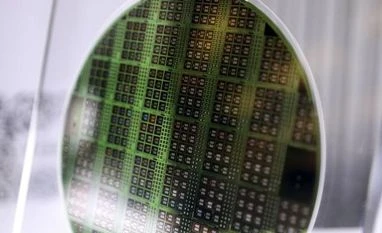India is on track to becoming a key player in the global semiconductor supply chain in the next decade with $ 10 billion of incentives and assistance provided to encourage local chip manufacturing, Union minister Rajeev Chandrasekhar said on Thursday.
The production-linked incentive scheme last year attracted firms like Vedanta and Taiwan's Foxconn, who promised multi-billion dollar investment in setting up units to manufacture chips, which are used in products ranging from mobile phones to cars.
Minister of State for Electronics and Information Technology Rajeev Chandrasekhar said there is "not one person in the semiconductor global ecosystem" that does not see India as "a very credible, viable and fast charging destination for semiconductor investments and innovation".
He also said that India is on track for the next 10 years in the semiconductor space with $ 10 billion (about Rs 81,993 crore), compared to China's three decades of progress.
"We are on track to do in the next 10 years with these $ 10 billion, what countries like China took 25-30 years and could not succeed."
He mentioned the ATMP project with Micron will create 5,000 jobs and 15,000 indirect roles in the semiconductor industry.
"Micron is a global leader in memory (solutions)," he said.
More From This Section
"Sometimes there are people with either lack of understanding or ... deliberately will characterize the last 15 months of effort in different ways. But the India story on semiconductor... the vision of India being a semicon nation has started a few months ago for the first time after 70 years," he said.
The government is implementing a "comprehensive curriculum" in partnership with the industry for creating 85,000 globally skilled talent for VLSI (very large scale integration), with students from post-doctorate degrees, masters and undergraduate courses, he said.
"We have rebuilt the electronics ecosystem since 2014, exporting over one lakh crores and crossed almost eight lakh rows of total electronic production... and becoming an increasingly big presence in global value ... supply chains for electronics," the MoS said.
He also announced that the government is "charging forward" in the design part of the semiconductor ecosystem with 30 startups, among which five have received direct financial support from the government.
Slamming the opposition, he said that India has missed the bus "repeatedly" on electronics and semiconductors.
"When Fairchild, the precursor to Intel, came to India in 1957 and wanted to set up a packaging unit, we chased them away. And that packaging unit went on to become ... one of Asia's largest packaging hubs in the world," he said.
"In 1987, we were just two years behind the latest node in chips. And today we are 12 generations behind," he added.
He said that the government aims to cap $ 300 billion in the electronics industry by 2025-26, of which $ 110 billion for semiconductors by 2029.
)